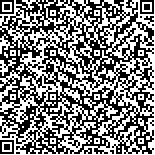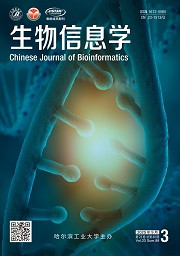| 引用本文: | 黄钰茜,郑德华,林荟,王一凡,何丽倩,王涛,李孔宁.肺鳞癌中视黄酸诱导基因样受体[]家族的分子特征研究[J].生物信息学,2025,23(3):192-198. |
| HUANG Yuqian,ZHENG Dehua,LIN Hui,WANG Yifan,HE Liqian,WANG Tao,LI kongning.Molecular characterization of the retinoic acid-inducible gene-likereceptor family in lung squamous carcinoma[J].Chinese Journal of Bioinformatics,2025,23(3):192-198. |
|
| |
|
|
| 本文已被:浏览 0次 下载 0次 |

码上扫一扫! |
|
|
| 肺鳞癌中视黄酸诱导基因样受体[]家族的分子特征研究 |
|
黄钰茜,郑德华,林荟,王一凡,何丽倩,王涛,李孔宁
|
|
(海南医科大学 生物医学信息与工程学院,海口 571199 )
|
|
| 摘要: |
| 通过转录组分析刻画肺鳞癌中视黄酸诱导基因样受体 (Retinoic acid-inducible gene-like receptor,RLRs) 家族的表达模式,结合PPI网络(Protein-Protein interaction network,PPI)和共表达分析筛选RLRs家族关键互作基因,探究RLRs家族基因表达与免疫分子和免疫细胞浸润的相关性,基于非小细胞肺癌免疫治疗数据探讨RLRs对于免疫耐受的影响,助力肺鳞癌免疫调控机制的研究。对下载的肺鳞癌mRNA表达数据,通过秩和检验方法探索RLRs家族成员在肺鳞癌中的表达差异,刻画其在不同癌症阶段的表达模式。进一步计算RLRs家族成员与互作基因的皮尔森相关性,识别显著互作基因进行富集分析。结合免疫调控和免疫细胞浸润数据,分析肺鳞癌中RLRs家族成员与三种免疫调节剂以及免疫细胞浸润的相关性。最后利用TIDE方法评估RLRs基因家族对于肺鳞癌患者免疫治疗受益性的影响,并通过COX回归验证RLRs家族成员的基因表达和肺鳞癌免疫治疗预后的关系。秩和检验发现RLRs家族成员在肺鳞癌的癌症患者中表达下调,且DHX58在肺鳞癌不同阶段随着分期表达下降。功能富集结果表明RLRs基因家族成员主要参与抗病毒的防御反应等生物学过程。免疫调控分析显示RLRs家族成员与MHC分子,免疫抑制剂,免疫刺激剂显著正相关,并且与B细胞、CD8+T细胞、CD4+T细胞、巨噬细胞、中性粒细胞的浸润均呈现正相关。RLRs基因能够影响肺鳞癌患者对于免疫治疗的受益程度,并且DDX58的高表达水平与免疫治疗患者较好预后相关。本研究揭示了RLRs家族成员在肺鳞癌中的表达失调,RLRs家族与肿瘤免疫微环境以及免疫治疗相关,DDX58有成为肺鳞癌预后分子标志物的潜力。 |
| 关键词: 肺鳞癌 RLRs家族 免疫治疗 预后分析 |
| DOI:10.12113/202404010 |
| 分类号:Q343.1 |
| 文献标识码:A |
| 基金项目:海南省重大科技计划项目(No.ZDKJ2021040);海南省大学生创新创业训练计划项目No.X202111810108). |
|
| Molecular characterization of the retinoic acid-inducible gene-likereceptor family in lung squamous carcinoma |
|
HUANG Yuqian, ZHENG Dehua, LIN Hui, WANG Yifan, HE Liqian, WANG Tao, LI kongning
|
|
(College of biomedical information and Engineering, Hainan Medical University, Haikou 571199, China)
|
| Abstract: |
| The expression pattern of the retinoic acid inducible gene like receptor family (RLRs) in lung squamous cell carcinoma is characterized through transcriptome analysis. This is complemented with Protein-Protein Interaction Network (PPI) and co-expression analysis to identify RLRs family related interaction genes. This study also aims to explore the correlation between RLRs family gene expression, immune molecule and immune cell infiltration, as well as to investigate the impact of RLRs on immune tolerance based on immunotherapy data of non-small cell lung cancer. These findings are expected to contribute to the understanding of immune regulatory mechanisms in lung squamous cell carcinoma.The differential expression of RLRs family members in lung squamous cell carcinoma is explored using the rank sum test method on downloaded mRNA expression data, and their expression patterns at different stages of cancer are characterized. Furthermore, the Pearson correlation between RLRs family members and interacting genes is calculated, and significant interacting genes are identified for enrichment analysis. The correlation between RLR family members and three immune modulators, as well as immune cell infiltration in lung squamous cell carcinoma, is analyzed by combining data on immune regulation and immune cell infiltration. Finally, the impact of the RLRs gene family on immunotherapy benefit in patients with lung squamous cell carcinoma is evaluated using the TIDE method, and the relationship between gene expression of RLRs family members and the prognosis of immunotherapy in lung squamous cell carcinoma is verified using COX regression.The rank sum test revealed that members of the RLRs family are downregulated in cancer patients with lung squamous cell carcinoma, and the DHX58 expression decreased with disease staging at different stages of lung squamous cell carcinoma. The functional enrichment results indicate that members of the RLRs gene family are mainly involved in biological processes such as antiviral defense responses. The immunoregulatory analysis shows that members of the RLRs family are significantly positively correlated with MHC molecules, immunosuppressants, and immunostimulants, and positively correlated with the infiltration of B cells, CD8+T cells, CD4+T cells, macrophages, and neutrophils. It is found that the RLRs gene can be affected by the degree of benefit of immunotherapy in lung squamous cell carcinoma patients, and that a higher expression level of DDX58 is associated with a better prognosis in immunotherapy patients. This study reveals that the expression of RLRs family members are dysregulated in lung squamous cell carcinoma. The RLRs family is associated with the tumor immune microenvironment and immunotherapy, and DDX58 has the potential to be a prognostic molecular marker for lung squamous cell carcinoma. |
| Key words: LUSC RLRs Immunotherapy Prognostic analysis |
|
|
|
|






